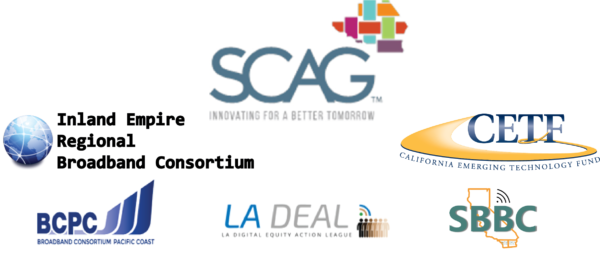
4 Regional Broadband Consortia are conducting a survey to determine the extent to which the availability of ubiquitous broadband could decrease vehicle trips and, in turn, reduce greenhouse gas emissions. This study is part of a CALTRANS Sustainable Communities Grant that examines the potential of “broadband as a green strategy” to reduce impacts on the environment if every household, business, government service, and community facilities were connected to the Internet with high-speed service.
View the Regional Broadband Stakeholder Survey
The Grant requires each Regional Broadband Consortium (RBC) conduct 2 target community Focus Groups and complete a total of 20 Interviews fwith participants from 2 different population groups, such as 2 distinct neighborhoods or points of service (such as health clinics, housing complexes, or community centers). The Focus Groups purpose is to determine the potential for low-income residents, who are the majority of unconnected and underconnected households in the region, to reduce vehicle trips, and therefore decrease greenhouse gas (GHG) emissions, if they had access to high-speed Internet infrastructure and were digitally proficient.
